Allison M. Dickson's Blog, page 16
February 16, 2013
In Defense of Hopelessness in Fiction
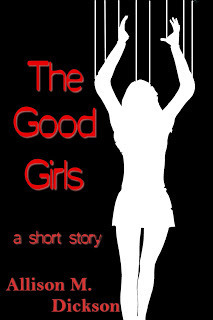
In recent months, I've given away close to 10,000 ebooks on Amazon. Free promotions can do a lot to spread an author's net far and wide to catch new readers, and in most instances this has been a good thing. But distributing your books to a larger sample of the population has other benefits, like showing whether or not your marketing or Amazon's mysterious cataloging algorithms are putting your books before the wrong target audience.
Take, for instance, my short story The Good Girls. It is, without a doubt, one seriously grim and dark piece of fiction. It's never been any kind of secret. In fact, I thought I highlighted this pretty well in the stark cover design and product description:
For the last five years, Nina has been turning tricks at a mob-run brothel to pay off an enormous debt, but the Madam is willing to let her go free if she sees one last client, a mysterious recluse with a chilling reputation.
It was an offer she couldn't refuse. One more client, one more trick, and all her troubles would finally be over. Or would it be the beginning of a new unspeakable horror that could obliterate Nina's mind for good?
I thought it was catchy, but I thought maybe I needed to beef it up a little more, so I added the following disclaimer to the product description and will consider adding it to the front matter too for people doing a little browsing before they click Buy:
DISCLAIMER: This is a very grim, very dark horror story. If you're expecting hope and happy endings, if you're expecting a hero, The Good Girls may not be for you.
I also put author notes at the end of all my stories, explaining the choices I made or some of the inspiration behind the story. Here is the note currently at the end of The Good Girls:
All right, I can feel some of you glaring at me right now, so I might as well address something. This story is grim, damned grim, even for me. However, there was a method behind all this. There always is. I’ll leave it up to you to figure out the themes, but trust that I wasn’t writing this just to be all mean and sadistic to poor Nina, or to you.
I had a feeling this would be one of the darkest pieces I’d ever attempted, and I wanted to challenge myself with it. I always feel like I’m flinching or pulling my punches a little, and this time I knew that if I did that, the story would not work on any level.
That’s not to say I didn’t try to give this story an actual hero in Ramón. That was just the optimist in me begging for attention. I tried out about six different endings that ranged from him coming back to burn down the house and kill the freak inside, to him killing Nina out of mercy when he sees what happened to her. In another version, I considered letting Nina get away mostly intact only to be tracked down by Victor Cassini’s men in Mexico sometime later. None of those endings rang true, though. Out of all the wisdom I’ve gleaned about writing over the years, the one piece that has really stuck with me (from Stephen King’s On Writing, in particular) is the value and importance of telling the truth. It’s been difficult to fully grasp that concept, but I think I finally get it now. It isn’t just about being visceral when the moment calls for it. It’s about making the hard call to go where your characters are truly leading you, even if it is down a dark and hopeless hole to nowhere. I feel, for better or worse, this was the only truthful conclusion for this story, and I hope you agree.
I write those notes for a reason. Some would say I might be apologizing for my work by doing this, that I'm trying to get out ahead of the criticism, and maybe there is some truth to that. I like communication. It's how I roll. I also do it because I like reaching out to readers and letting them know that I'm a real person. That I'm "here." I like being accessible.
At any rate, The Good Girls seems to have recently fallen onto the Kindles of a lot of people who clearly do not read horror, or at least review it. All of the reviews by the people who have chastised me for writing this depressing sadistic filth seem to be concentrated in the romance genre (paranormal or otherwise). One of the most recent two-star reviews asked, "Where's the hope?"
Well I'll tell you where it isn't. It's not in The Good Girls, and it was never intended to be. You want hope? Stick to romance. Okay okay, sure, I like to put glimmers of hope and optimism in my work from time to time, but they're like gold shavings in a murky river bottom. You may see it, you may not.
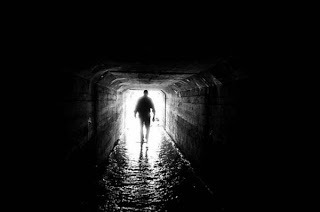
Horror, to me anyway, is about the absence of hope. And although it takes a little bit of creative thinking to find the value in that, there is value. There is a reason people love the horror genre, and it isn't because they love watching people suffer. Okay, maybe some of them do, but I think overall it's all about adrenaline and perspective. It's about traveling through a dark and scary tunnel and emerging into the sunlight of our mundane lives and feeling perhaps a tad grateful it. And the darker the darkness, the brighter even a dim candlelight can seem.
And if you like romance novels and books with shirtless men on the cover, chances are you might not find The Good Girls to your liking. I hope you do. I welcome all readers. But if you're going to criticize me for doing what I intended to do, realize that you're really only helping me in the end.
At the very heart of horror lies optimism. It just isn't going to be spelled right out for you and handed to you on a silver platter. The optimism and hope in most of my work, and horror in general, is a BYO kind of thing.
Published on February 16, 2013 08:18
February 14, 2013
The Ever-Shifting Definition of Success as an Author
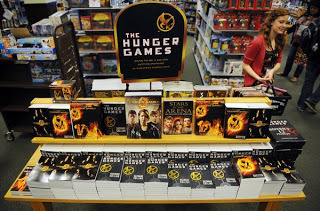
Shelf space is its own hunger game
A long time ago, when I would walk through the hallowed aisles of Barnes & Noble, gazing upon the venerated front tables filled with the latest and greatest releases from the world's most talented and sought-after authors, I thought that was the ultimate endgame. That was the dream. That was my threshold for success.
I used to read the best-seller lists from the New York Times and would think that I couldn't possibly have "made it" as an author until I was gracing the top ten. I used to read about all the Big Six publishers and dream of the day I'd call my mom, tears streaming down my face, and screaming "I just got signed to a three-book deal at Random House! I'm sending you a million dollars and buying a pony and moving to Italy!"
I would read prestigious publications like The New Yorker or watch what was the latest and greatest in the Oprah Book Club and think, "Gee, if I can get here, then I'll truly have achieved something."
I would gaze at literary agent listings and think that unless I had the biggest badass bulldog hotshot in Manhattan peddling my books, I wasn't going to get anywhere as a writer.
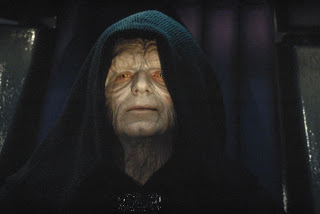
Palpatine is a great agent. Very high commissions.
Then I really started learning about the publishing industry and its dark side. I started reading about how even authors who hit the bestseller lists aren't exactly rolling in it these days. I learned how many authors had been chewed up and spit out by their publishers over things like non-compete clauses or not earning out their advances and therefore not being able to publish their next books. Or how publishers demanded an option of an author's next book, only to turn down that book and then dump the author entirely. I learned how much money it costs publishers to buy space on those prominent tables in bookstores, and how ultimately meaningless it is when those businesses are falling like dominoes and everyone is buying their books online. I learned that agents, even the best ones in the biggest firms, are struggling right now and looking for ways to remain relevant when authors can produce and upload their own work and not give away 15% of their earnings.
I learned that if I wanted to stay in this business, I had to change my definition of success.
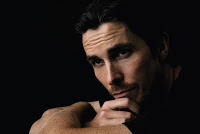
"Milk or dark chocolate?"
This isn't to say that being on the NYT Bestseller list or nabbing that three-book Random House deal wouldn't make my ego feel as amazing as bathing in hot fudge with Christian Bale, Daniel Craig, and/or a couple of unicorns, but I now know it's no longer necessary to have those things in order to feel fulfilled as an author.
The only things an author really needs to feel like a real author (other than written material) are readers and royalties. Readers come from everywhere, and royalties, well... they might be peanuts starting out, but you'll eventually find that those peanuts are like little nuggets of gold that scream out: ERMAHGERD! SOMEONE GAVE YOU MONEY FOR YOUR STORIES!!! And that's often enough to make you keep pushing for more.
There are many advantages to working with a small press that you won't get from a large publisher. They're more flexible, more personable, more keen to your creative wishes. Every book they accept has to, without question, do well or they won't be able to keep the lights on. They don't have multi-million dollar book deals with Snooki or the latest disgraced politician to keep their ships afloat while midlisters rise to and then drop from their ranks like flies. The right small-press, one that invests in its authors, knows that they have to sell or everyone loses. Also, their contracts are often fairer. Some of them can even give you a better share of royalties and pay you more often. And when you're self-publishing and can manage to do well for yourself, that's complete freedom right there.
When you make it to a certain point in your career where you've attained enough success in the "minor leagues" to attract the attention of some of the bigger players, you start to get a sense of what you really want. The lens comes into focus and you find that your original dreams aren't exactly what you thought they were. No more does that huge writing contract seem as alluring if it comes at the expense of certain freedoms, or a shorter shelf-life for your book. That front table at Barnes & Noble doesn't seem all that important when you think about what you might have to sacrifice in exchange for it.
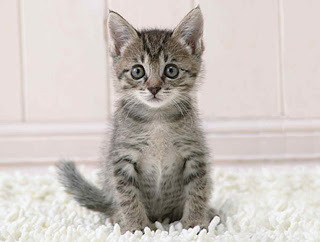
Think of your book as this cute kitten. Would you want to sacrifice or orphan this cute kitten?
You realize that bigger isn't always better. For most authors signing with Big 6 publishers, they're lucky if they're going to get more than $5000 for an advance, and if their book only performs moderately well, that's likely all they're ever going to make before it's taken out of print and the publisher moves on to the next big thing (often while you're struggling to get your rights to that book back, depending on the kind of contract you signed). That's right. Five grand. Sure, it's probably five thousand more dollars than you're making on your writing right now, but when you think of the time you put into that book (years, in many cases), suddenly a job in a sweatshop seems a tad more lucrative. And even as an author with a big, rich publisher, you're still going to be making a fraction of what you think you're worth. If you're depending on a day job to keep food on the table, you're probably going to still need it after you get that book deal. You're going to be spending a lot of your own money for promotions, travel, and other events. Your life is still going to be as challenging and ordinary as it ever was.
I have a feeling I could have attracted a good agent with my book STRINGS. It's more mainstream than my other work, it has a large audience (thriller), and not to toot my own horn, but I think it's pretty darn good and possibly the best thing I've ever written. But in the end I stuck with what was working for me. It's a big, scary world right now, and with all the transition happening in the publishing industry, I don't feel much like venturing out into open water to swim with the sharks. Hobbes End has been excellent to me, I love working with them, and I believe they are very skilled at producing books, marketing them, and getting them into readers' hands. In the end, that's what I'm after.
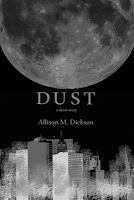
The moon might also be covered
with carnivorous dust particles.
/shameless plug
So when it comes to a writing career, I don't want to discourage people from shooting for the moon, but rather to think about what the moon actually is. It's gorgeous from down here on earth, all glowing and majestic, but in reality it's a dry, airless rock floating around in the dark. Maybe you'll find that works for you. Maybe you're able to survive in such hostile environments. Or maybe you'll find you're happy with another destination. Either way, I think a realistic adjustment of your expectations is a good thing, especially when you realize that as a writer, there are a lot of different ways to get "there." Wherever "there" happens to be.
Published on February 14, 2013 18:34
February 5, 2013
"All In" with KDP Select, or My Life Without Smashwords
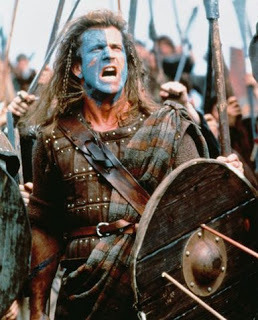
Self-publishing is nothing if not a giant experiment, and I think that's what makes it exciting and appealing. If one method of selling isn't working for you, then by golly, you can just try something else without having to answer to some higher power. You're in charge of your own destiny! Nothing is over until WE decide it is!
FRRREEEEEEDOMMM!!!!
Ahem. Sorry about that.
So, as you probably read in one of my more recent posts, I told Smashwords to eat a giant bag of phalluses (phalli? phallae?), which left me with a choice to make in terms of how I was going to distribute my work. I could have either uploaded my library manually to Barnes & Noble and Kobo, or I could push all my chips to the middle of the Amazon table and go full KDP Select. There were a lot of pros and cons associated with either of these decisions, but what ultimately won me over was laziness. Sure, the free days and the possibility for extra earnings through borrowers on Amazon Prime were also a factor, but the thought of uploading all seventeen of my books on two separate websites, where they would likely not sell a single copy for months, just filled me with an overwhelming dose of meh.
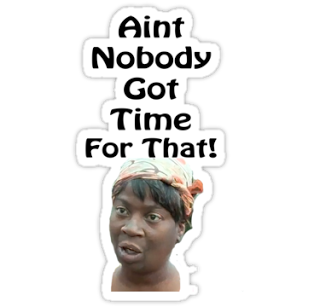
After making my decision, I decided to have a big freebie day extravaganza on New Year's Day. In the course of that single day, I gave away over 6300 books. After that, I went on to have my best sales month ever. Triple digit sales and double digit borrows. I made in January what it took me six months to make last year. I also picked up about eight or nine new reviews. Things slowed down a little toward the end of the month, but overall, things remained steady. So I figured I might as well try the same thing for February.
I gave away about 3500 books on February 2nd, and since then, I've been back on a similar sales track that I was at the beginning of January. I should also note that on both freebie days, I managed to land over half my titles in the Top 100 (and in the Top 10) on the sales rankings.
A couple things I think make a big difference, and I think why some people might be having mixed to negative results with their trial experiences in Select. It isn't enough to just have one title in the program, and it isn't enough to have one title free for a day. I think the algorithms seem to favor the full saturation approach. If you have more than one title in Select, they should all go free on the same day. Maybe one day a month, two max. Flood the system with your work, dominate the charts. You'll get a ton of downloads and subsequent sales will benefit accordingly.
This is also why it comes in handy to have a large library, period. One hand washes the other. Or five or ten or a dozen or two dozen. If you aspire to self publish, don't just release one book. Don't release just two or three. You aren't going to build an audience with a single book. Audiences thrive on repeat performers, and they aren't going to commit to someone who doesn't seem committed. Stockpile about five or six stories, then produce them and release them in quick succession. It'll pay off.
Anyway, am I saying it's worth joining KDP Select, giving up your ability to distribute to other sellers, shutting out other platforms, and basically making yourself an exclusive slave to Amazon? Not necessarily. But has this particular approach worked for me and produced record sales after months of dregs? Absolutely. I can't say it will continue to work month after month, but it's working for now. The beauty is, if it quits working, I can find another strategy that will. That's the beauty of self-publishing: flexibility.

Or something...
Published on February 05, 2013 19:31
January 17, 2013
End of Year Indie Pub Accounting: Am I Rich Yet? No. But We Have GROWTH!

Those coins represent my first six months of sales on Amazon.
Okay, not really. But close.
Accounting sucks. I don't even like reading fiscal stories in the news beyond knowing who's going under and who's crushing the competition. My husband and I have had some retirement accounts and 401Ks that we've since cashed out due to one financial trauma or another over the years. I had a brief infatuation with stocks and all that crap when I was in high school and even put a little money in the market once. It didn't give me so much as a semi (metaphorically speaking), which is probably why I will not die exorbitantly wealthy.
However, I do get a bit of a thrill counting up yearly sales figures. Not because I'm raking in a lot of money, but because it's interesting seeing the progression of this little indie pub career of mine since its inception in late 2010. Right now, I'm going to reveal some figures to you. There are those out there who probably think I'm making decent money at indie publishing, but I'm going to cut to the chase real quick: I'm not. In fact, everything I made in 2012 couldn't even pay one month's rent in this tiny house I share with my brood.
That sounds pretty disheartening if you're looking to get into this yourself, but it's best not to look at it that way. Why? Well, let me explain.
No one gets into this to get rich. Sure, we're inspired by the likes of Amanda Hocking and John Locke and other so-called "Kindle Millionaires," but the reality is that almost never happens and I've never been averse to telling people that. When you put your first book up onto Amazon or Smashwords, you'll be lucky if you make ten bucks in your first three months. I know I didn't, and most people will not either. So if your first book isn't selling, your natural tendency is to stop wasting your time, right? Wrong. It means you have to keep putting things out there. Build your catalog, attract new readers through free promotions and giveaways, and do all kinds of hard work for which you won't see a red cent for quite awhile.
Want to see some real numbers? Here are my 2011 earnings from Amazon (granted, I started selling at the end of 2010, but I don't think I got an actual deposit from them until March of 2012, because it took that long to break the $10 minimum "we're going to deposit this money now" threshold). Also, keep in mind that November and December don't get paid until the following calendar year because Amazon pays 60 days after the monies earned:
19.60 -- October
15.90 -- September
4.19 -- August
5.17 -- July
8.24 -- June
10.30 -- May
.70 -- December 2010
1.05 -- November 2010
TOTAL: $65.15
If you're curious, I made $45.44 over the course of three quarters in Smashwords sales, bringing my GRAND TOTAL across all markets to a whopping $110.59!
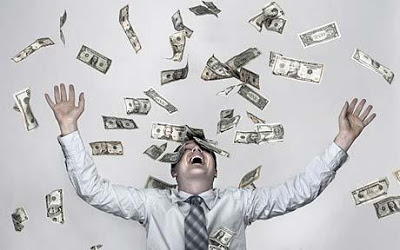
Cue the confetti and noisemakers! Pop the bubbly! (or maybe some generic Boones Farm in this case). I made in one year of selling a catalog of about four or five short stories about one week's worth of groceries. Or not quite one month's worth of gas for my husband's Toyota Yaris. Chump change doesn't even come close to describing it, but hey, I was a PAID AUTHOR. And the pride associated with that was worth millions.
But then something happened in the latter part of 2011. I sort of got "discovered." My short story, "Under the Scotch Broom" went free on Amazon, and I got something like 11,000 downloads in the course of one month. After that, I put up my entire small catalog up for free and got thousands more. Those thousands of downloads started leading to some reviews. Those reviews led to some actual paid sales. Those sales and reviews led to my discovery by Hobbes End Publishing and my eventual book deal with them. I put up more stories for sale as well as a couple novels. In the last year, my catalog of offerings has gone from 4 or 5 short stories to 17 or 18 (combined short stories and novels), and I project it will grow to near 30 by the end of the year.
Sales numbers and money have reflected this progression as well. Here are my 2012 earnings:
23.45 -- October
27.50 -- September
21.17 -- August
21.30 -- July
32.30 -- June
33.41 -- May
28.01 -- April
50.47 -- March
42.33 -- February
18.20 -- January
8.05 -- December 2011
22.95 -- November 2011
TOTAL: $329.14
Adding in Smashwords sales of $204.79 and that brings me to a GRAND TOTAL of $533.93.
Now, to prove that the curve of growth is continuing, my November 2012 total is double what October's is. I grossed nearly $50 that month. In December, sales increased to $63, and for January of 2013, I'm on track to break $100 for the first time ever.
And in all but a few instances, ALL of the sales you're seeing above were made thirty-five cents at a time. Most of my ebooks are $.99, and $.35 is the cut I get. Every time I see a new buy on my sales reports, I hear a quarter and a dime clinking in my imaginary tin cup. Over time, those quarters and dimes add up. And this doesn't even speak to the numbers of readers I've gained, which are worth far more over the long run. Those are the readers who might just buy The Last Supper when it comes out, and that is when the real dollars start rolling in.
Is this earth-shattering money? Hell no. In fact, I wish I could brag more and tell you all that I'm paying all my bills off my book sales and that my husband has been able to retire from his 9-5 and start pursuing his own dreams, but you know what? If things continue along this track, that might just be the case in five years. If I saw a five-fold growth in my second year of peddling $.99 short stories, a five-fold growth in my third year gives me $2669 dollars. A five-fold growth in my fourth year gives me $13448. In my fifth year, that gives me $66741, which is currently $20,000 more than my husband's salary. And if I lived the rest of my life making about that much money per year, I would be a very happy woman. I don't need a lot of money to be happy. I just like being able to pay the goddamn power bill on time.
And like I said, that's just predominantly selling $.99 short stories. That doesn't even factor in the novels I might offer, or the possibility that one of those things goes viral and breaks me through another ceiling, similar to what I saw at the end of 2011. Anything could happen. The whole point is that it's all about making upward progression.

Have I exhausted the corporate lingo and imagery yet?
That's me being conservative with the numbers. That's me being patient. That's me not factoring in what might come when I have books from traditional publishers getting a much greater reach and market penetration than I've been able to get doing this by myself on a shoestring budget.
So what works? Talent, sure. Writing things people want to read, definitely. But also patience, perseverance, and productivity. Pumping out enough books to keep yourself relevant and fresh in people's minds. GIVING AWAY more books than you can probably stomach so that you can entrust yourself with new readers and make them want to come back and spend money on you. Knowing that you're not going to get rich doing this, but you can make a little bit of scratch and have a ball while doing it. And perhaps, most importantly, to do a little spin on that old canard from the sales industry: ABS. Always Be Selling. Or rather, in this case, Always Be Writing.
Published on January 17, 2013 11:21
January 12, 2013
Allie's Book Cover Rules for Non-Artists
I've spoken about book covers in my Indie Pub FAQ, but I think it's time I devote an entire post to them. It's something I've had on my mind to do for quite awhile now, but after taking a trip through one of the most amazing Tumblrs the internet has ever spawned, I'm feeling particularly motivated. Because...wow. There are a LOT of bad book covers out there, chiefly coming from self-published authors, however traditionally published books are not immune from this. Case in point:
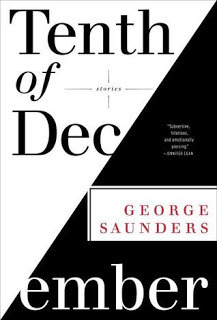
This book is currently riding on the New York Times bestseller list, but I can guarantee it isn't because of the cover. It's in spite of it. Mr. Saunders is a pretty well-known author, so the virtue of his name helps most folks to ignore the horribly laid out graphics on his latest book.
But as annoying as this design is, I couldn't really call it ugly. Ugly is reserved for the books in the above link. You'll just have to click through, because as tempting as it is for me to pick out some of the more egregious entries, I just don't want to ugly up my website with bad art. I also don't want pissed off authors coming after me. Instead, I'll just tell you some of the things a book cover should and should not do, in the hopes that you will not wind up on Nathan Shumate's Tumblr page.
You don't have to be an artist to make a decent cover. You just have to know a few key points and also it helps to have a basic working knowledge of a graphics design program (I use GIMP, which is free). I've done all but two of mine, and while a couple of them aren't good (I hope to redo Under the Scotch Broom and Vermin when I have the time), I like to think that most of the other ones are decent. Some of them I'm actually quite proud of. And I'll tell you something: the ones I'm most proud of were also the simplest ones to do. Which brings me to my first rule.
1. Keep It Simple
If you're not an excellent artist or illustrator, or if you're not writing a high fantasy or superhero story, you don't really need a highly detailed or illustrated cover. If you have written one of these stories and aren't an artist, it's best you find someone you can commission, because artwork is nothing to fuck around with or take lightly. It's labor intensive and expensive, and worth every penny. Most people aren't the best judges of art, but almost everyone knows really bad art when they see it. Illustrated covers are a huge risk and should only be attempted by the Ultra-Talented.
If your cover doesn't demand major illustration, then you can center your design around decent fonts and pre-existing graphics. But AGAIN, limit the number of items you use in your picture to one or two things. If you start pasting in all sorts of cut-out images, it's going to look like a Google Image collage thrown together by a drunk third-grader, and this is bad. Unless you have some mad Photoshop skills and can blend things in seamlessly to make them look like a natural part of the environment, it's going to look like a badly 'shopped cover. Again, Photoshop and similar programs are very time consuming to use correctly, and unless you have the know-how to do it right, don't do it at all. More casual users should pick ONE evocative image, play around with some filters (but don't go overboard on those either) and then add your fonts.
2. Use Fonts Wisely
The font list on any graphic design program is exhaustive. And that doesn't even include the thousands of other fonts from the internet you can add to it. A font is, in itself, an artform, and like any art they can be amazing or horrific. So the first tip is, don't choose a horrific font. Don't even chose a font that someone else could find horrific. This all goes back to the first rule: KEEP IT SIMPLE. It should be legible at first glance. No one should ever have to look at your title twice to make sure they read it right. If one of your letters makes your word look like a totally different word, change the font. If you can read it okay when the cover is enlarged, but can't when it's a thumbnail, change the font.
That isn't to say you should use standard Courier/Times New Roman/Arial fonts. But those super scripty/gothy looking things that make every word look a cluster of sword-wielding midgets? No. Also, you can kick Comic Sans right in its taint.
3. Watch Your Embellishments
Same with the font list, the filters and tools lists on most graphic design programs are also expansive. It can be tempting to gaussian blur, hue saturate, and drop shadow your way into oblivion, but restrain yourself. It's like the typical rule for women who wear makeup: less is more. These tools are more or less there to help you evoke the mood of your story. Again, unless you really know what you're doing, you're going to be making less an artistic statement and more a "I don't know what I'm doing" statement if you don't take it easy. Limit yourself to maybe two or three embellishments, tops. Enough to evoke the mood of your story and enhance the wording. For instance, use a drop shadow on your title and author fonts. Use the smudge tool to blur things out a little. Change the opacity of your background layer to give it a more ghostly appearance or play with the color balance if necessary. Unless you're doing extremely minute touch-ups on something or unless you're already a gifted artist with a steady hand, DON'T break out that paintbrush. Preferably, you should have a graphics tablet to do such things. Otherwise, it's going to look like a preschooler wiped a paint booger all over your cover.
4. Layouts Are Important
Look at great book covers. There is a symmetry to them, and it's like that for a reason. The eye finds certain shapes to be appealing, and that's true in photography as well as design. Triangles in particular are something people like a lot of, and you'll find that a lot of the best pictures have hidden triangles all through them. Of course, that isn't always the case, but symmetry is still king. Whether you want to make the title or the author name more prominent is up to you, but either way, it should be centered and/or balanced properly, otherwise it's just going to look sloppy. If you're worried it'll look "too neat," don't. If you're not experienced enough an artist to pull of "sloppy with meaning," then you shouldn't go there. A neat, readable cover will almost ALWAYS trump your attempt at "structurally avant garde."
5. Flat is Boring
After all my cautions against overdoing it, I'm also going to advise against just slapping words on a picture and calling it done. While you don't want to graphically vomit all over the thing, you also don't want to look like it took you two minutes to throw the cover together. Flat words on a picture scream "amateur." Make your fonts pop with drop shadows, gradients, or bevels. Use a couple different (but complementary) fonts on the cover to add some dimension. Make the graphics and words look like they belong together. Make it POP.
Those are the main points, but there are a few other ones I just want to throw into the mix:
Use good dimensions. Amazon and other e-publishing services specify minimum dimensions for cover images, but I like to exceed them. I design my stuff on a 1600 x 2400 surface, but if you're using something smaller, that's okay too. The key is to just be consistent. I have a few that are little wider, but most of my stuff is the same dimension.
Don't know how to do a good bevel on your fonts using GIMP? Want to know how to make flames or smoke on Photoshop? Confused by how to properly use layers? The online community is a great help for learning technique. Check YouTube for some good tutorials specific to the program you're using. The more you practice and the more covers you make, the easier it becomes.
Using someone else's images without permission can land you into some hot water if they catch you. Stock.xchng and Creative Commons are good ways to find royalty-free or decently priced stock photos. Whatever you do, make sure you have it attributed properly.
If all of this seems too overwhelming and you're not sure you have the chops or the patience to put together a decent cover, there are a ton of great artists out there who can do simple but elegant ones for a nominal fee (some offer their services for under $100, but check to make sure they're reputable). Just know that if what you aspire to do exceeds your abilities, it's worth the money to have someone with more experience tackle it. Otherwise, the only thing you might get in return for your artistic efforts is ridicule, and no one wants to be someone's Tumblr bitch.

This book is currently riding on the New York Times bestseller list, but I can guarantee it isn't because of the cover. It's in spite of it. Mr. Saunders is a pretty well-known author, so the virtue of his name helps most folks to ignore the horribly laid out graphics on his latest book.
But as annoying as this design is, I couldn't really call it ugly. Ugly is reserved for the books in the above link. You'll just have to click through, because as tempting as it is for me to pick out some of the more egregious entries, I just don't want to ugly up my website with bad art. I also don't want pissed off authors coming after me. Instead, I'll just tell you some of the things a book cover should and should not do, in the hopes that you will not wind up on Nathan Shumate's Tumblr page.
You don't have to be an artist to make a decent cover. You just have to know a few key points and also it helps to have a basic working knowledge of a graphics design program (I use GIMP, which is free). I've done all but two of mine, and while a couple of them aren't good (I hope to redo Under the Scotch Broom and Vermin when I have the time), I like to think that most of the other ones are decent. Some of them I'm actually quite proud of. And I'll tell you something: the ones I'm most proud of were also the simplest ones to do. Which brings me to my first rule.
1. Keep It Simple
If you're not an excellent artist or illustrator, or if you're not writing a high fantasy or superhero story, you don't really need a highly detailed or illustrated cover. If you have written one of these stories and aren't an artist, it's best you find someone you can commission, because artwork is nothing to fuck around with or take lightly. It's labor intensive and expensive, and worth every penny. Most people aren't the best judges of art, but almost everyone knows really bad art when they see it. Illustrated covers are a huge risk and should only be attempted by the Ultra-Talented.
If your cover doesn't demand major illustration, then you can center your design around decent fonts and pre-existing graphics. But AGAIN, limit the number of items you use in your picture to one or two things. If you start pasting in all sorts of cut-out images, it's going to look like a Google Image collage thrown together by a drunk third-grader, and this is bad. Unless you have some mad Photoshop skills and can blend things in seamlessly to make them look like a natural part of the environment, it's going to look like a badly 'shopped cover. Again, Photoshop and similar programs are very time consuming to use correctly, and unless you have the know-how to do it right, don't do it at all. More casual users should pick ONE evocative image, play around with some filters (but don't go overboard on those either) and then add your fonts.
2. Use Fonts Wisely
The font list on any graphic design program is exhaustive. And that doesn't even include the thousands of other fonts from the internet you can add to it. A font is, in itself, an artform, and like any art they can be amazing or horrific. So the first tip is, don't choose a horrific font. Don't even chose a font that someone else could find horrific. This all goes back to the first rule: KEEP IT SIMPLE. It should be legible at first glance. No one should ever have to look at your title twice to make sure they read it right. If one of your letters makes your word look like a totally different word, change the font. If you can read it okay when the cover is enlarged, but can't when it's a thumbnail, change the font.
That isn't to say you should use standard Courier/Times New Roman/Arial fonts. But those super scripty/gothy looking things that make every word look a cluster of sword-wielding midgets? No. Also, you can kick Comic Sans right in its taint.
3. Watch Your Embellishments
Same with the font list, the filters and tools lists on most graphic design programs are also expansive. It can be tempting to gaussian blur, hue saturate, and drop shadow your way into oblivion, but restrain yourself. It's like the typical rule for women who wear makeup: less is more. These tools are more or less there to help you evoke the mood of your story. Again, unless you really know what you're doing, you're going to be making less an artistic statement and more a "I don't know what I'm doing" statement if you don't take it easy. Limit yourself to maybe two or three embellishments, tops. Enough to evoke the mood of your story and enhance the wording. For instance, use a drop shadow on your title and author fonts. Use the smudge tool to blur things out a little. Change the opacity of your background layer to give it a more ghostly appearance or play with the color balance if necessary. Unless you're doing extremely minute touch-ups on something or unless you're already a gifted artist with a steady hand, DON'T break out that paintbrush. Preferably, you should have a graphics tablet to do such things. Otherwise, it's going to look like a preschooler wiped a paint booger all over your cover.
4. Layouts Are Important
Look at great book covers. There is a symmetry to them, and it's like that for a reason. The eye finds certain shapes to be appealing, and that's true in photography as well as design. Triangles in particular are something people like a lot of, and you'll find that a lot of the best pictures have hidden triangles all through them. Of course, that isn't always the case, but symmetry is still king. Whether you want to make the title or the author name more prominent is up to you, but either way, it should be centered and/or balanced properly, otherwise it's just going to look sloppy. If you're worried it'll look "too neat," don't. If you're not experienced enough an artist to pull of "sloppy with meaning," then you shouldn't go there. A neat, readable cover will almost ALWAYS trump your attempt at "structurally avant garde."
5. Flat is Boring
After all my cautions against overdoing it, I'm also going to advise against just slapping words on a picture and calling it done. While you don't want to graphically vomit all over the thing, you also don't want to look like it took you two minutes to throw the cover together. Flat words on a picture scream "amateur." Make your fonts pop with drop shadows, gradients, or bevels. Use a couple different (but complementary) fonts on the cover to add some dimension. Make the graphics and words look like they belong together. Make it POP.
Those are the main points, but there are a few other ones I just want to throw into the mix:
Use good dimensions. Amazon and other e-publishing services specify minimum dimensions for cover images, but I like to exceed them. I design my stuff on a 1600 x 2400 surface, but if you're using something smaller, that's okay too. The key is to just be consistent. I have a few that are little wider, but most of my stuff is the same dimension.
Don't know how to do a good bevel on your fonts using GIMP? Want to know how to make flames or smoke on Photoshop? Confused by how to properly use layers? The online community is a great help for learning technique. Check YouTube for some good tutorials specific to the program you're using. The more you practice and the more covers you make, the easier it becomes.
Using someone else's images without permission can land you into some hot water if they catch you. Stock.xchng and Creative Commons are good ways to find royalty-free or decently priced stock photos. Whatever you do, make sure you have it attributed properly.
If all of this seems too overwhelming and you're not sure you have the chops or the patience to put together a decent cover, there are a ton of great artists out there who can do simple but elegant ones for a nominal fee (some offer their services for under $100, but check to make sure they're reputable). Just know that if what you aspire to do exceeds your abilities, it's worth the money to have someone with more experience tackle it. Otherwise, the only thing you might get in return for your artistic efforts is ridicule, and no one wants to be someone's Tumblr bitch.
Published on January 12, 2013 11:50
January 7, 2013
Plan B
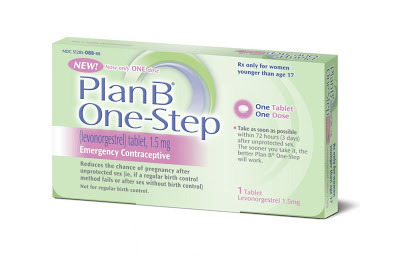
If only all backup plans came in the form of a pill
Having a Plan B is a good thing. And I'm not talking about the emergency contraception kind, although that's not really a bad idea either.
What I ultimately mean is a backup plan for life.
None of us can bank on the notion that what we do is eternally secure. Jobs can disappear as quickly as snow in Arizona. Entire once-viable markets can evaporate. Just ask the guy who used to repair VCRs. Ask mail carriers in about five years. Ask Barnes & Noble employees in six months.
Shit happens.
Not only that, enthusiasm can wane. Dreams that seemed so ripe for potential can go bust before they ever take off, like so many North Korean rockets on the launch pad. This writing thing I've been working steadfastly at since 2007 might still never really go anywhere. That book I have coming out in a few months might flop. Hell, what if my publisher goes out of business? What's going to happen to the publishing industry when the last national bookstore chain goes under? What if I have a commercial failure that's so spectacular it kills my desire to be an author?
I don't have any reason right now to believe any of those things will happen (well, except the Barnes & Noble thing), but you just never know. You can't predict these things. Just like I never would have predicted that,in 2009, my husband would lose the job he'd held for the last 13 years and that in the blink of an eye we'd go from a decent middle-class income with scads of benefits to living on welfare for three months to keep the lights on, and that a few months after that, we'd be living halfway across the country. But it happened, and here we are.
So what is my backup dream? What's the other card up my sleeve? What's the one thing in the world I want to do more than writing?

Well, luckily for me, there are a lot of things I love. Recently, I've pondered the possibility of going to culinary school. It's probably the one vocational field I think I would excel in. I want to be a pastry chef. I want to own my own bakery. I even came up with a name for it awhile back: The Ugly Pastry Company. I would specialize in rustic breads, cookies, muffins, cakes, and pies, all made with local ingredients. Why ugly? Because I don't make pretty food. I make delicious food.
I don't necessarily think I need to go to culinary school to become a chef, but I think it would help. It would also be fun. I've dreamed a lot of having a business I could pass down to my kids. Better yet, I think I could be a baker and still be a writer. But it would be a lot easier to do both once the writing career is paying for itself a little more, and the good thing is I'm really really close to making that happen.
So that's my Plan B. If I couldn't be a writer, I'd be a baker. One day, I hope to be both.
What's yours?
Published on January 07, 2013 23:44
December 27, 2012
2012 and Summiting Maslow's Hierarchy
Because saying "2012: The Year I Finally Grew Up" just doesn't sound very self-actualized. But I'll get to that in a moment.
Another new year is approaching, and it's time to sit and take stock of the previous twelve months of my life to see if anything happened worth noting. Most of the previous years have been marked with one difficulty or another, and I won't say that 2012 was completely free of them. Life isn't life without hardships. It's like any good story: it has to have conflict in order to be worth a damn. But something happened along the way that was profound enough to eclipse all of that.
I engaged in a cease-fire in the war against myself, and I think it worked.
No, I'm not saying I no longer have worries or moments of uncertainty. That would make me more a robot than a human being. But when I do worry, it's more of an acute thing.
"Is there enough money in the bank account?"
"Did I over-salt the bread I just made?"
"Oh shit, I forgot to pay the water bill AGAIN."
Normal stuff. Situational stuff. No more is it:
"I'm a horrible person because I'm fat."
"What can I do to make myself more desirable to others?"
"I need something more than what I have."
I haven't had these thoughts in a long time, and for awhile I thought it was because something was wrong with me, like maybe I was suffering from a bout of depression (which is funny when you think about it... I'm not hating myself enough, so I must be depressed). I thought everybody had those thoughts. I thought shame spirals were a regular part of the human experience. But then I realized that they aren't. Or rather, they shouldn't be. Maybe I wasn't having those thoughts anymore because I've reached some strange new plane of being that I didn't think was actually possible.
You know that whole Maslow's Hierarchy of Needs thing from Psych 101 that lists all of our essential needs in the form of a triangle, the top of which is the ultimate goal of self-actualization? See below:
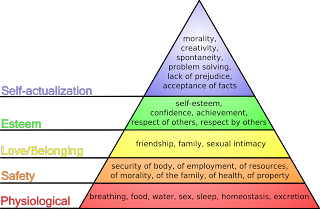
It starts with the basics. Physiological needs. Check. Safety. Check. Love/Belonging. Check. Esteem -- that one's a biggie, and the one I've battled most through my adult life, but yes, check. Maybe it's because I've finally realized that my self-esteem has nothing to do with how I look. Once I made that realization, it all became a hell of a lot easier. Vanity fucking sucks.
All of which leads to the top level: self-actualization. Did I achieve it? Yeah, I think so. Or at least I'm damn close. It's a work in progress, but I think I'm about 90% of the way there, and that's good enough for me right now. Wikipedia breaks the whole self-actualization thing into more detail:
Efficient perceptions of reality. Self-actualizers are able to judge situations correctly and honestly. They are very sensitive to the fake and dishonest.
I would say I can do this relatively well.
Comfortable acceptance of self, others, nature. Self-actualizers accept their own human nature with all its flaws. The shortcomings of others and the contradictions of the human condition are accepted with humor and tolerance.
Yeah, I think that's key. Not taking yourself too seriously. Realizing that we are all walking contradictions and that none of is perfect is the cornerstone of self-actualization, in my opinion.
Spontaneity. Maslow's subjects extended their creativity into everyday activities. Actualizers tend to be unusually alive, engaged, and spontaneous.
I'd say if I had more money, I'd be a lot more spontaneous, but the desire is there perhaps more than it ever has been to see and do different things. To take in life and savor it. But I stress that this recent realization will never (and I repeat NEVER) include use of the horrible new "word" YOLO.
Task centering. Most of Maslow's subjects had a mission to fulfill in life or some task or problem outside of themselves to pursue. Humanitarians such as Albert Schweitzer and Mother Teresa are considered to have possessed this quality.
This one I need to work on more. In fact, I was recently discussing the desire to adopt a family for Christmas next year, as well as put in some volunteer a local community restaurant. So again, the desire is there. Implementation is on the horizon.
Autonomy. Self-actualizers are free from reliance on external authorities or other people. They tend to be resourceful and independent.
If I wasn't at least somewhat autonomous, I couldn't be a writer.
Continued freshness of appreciation. The self-actualizer seems to constantly renew appreciation of life's basic goods. A sunset or a flower will be experienced as intensely time after time as it was at first. There is an "innocence of vision", like that of an artist or child.
Some people call me easily amused for a reason. My sense of wonder has rarely, if ever, been dulled. I feel like that is one quality about myself that I value the most.
Fellowship with humanity. Maslow's subjects felt a deep identification with others and the human situation in general.
More so than ever, perhaps because it's more necessary than ever.
Profound interpersonal relationships. The interpersonal relationships of self-actualizers are marked by deep loving bonds.
Most definitely, and probably the biggest one aside from self-esteem. I don't think I have ever loved being a parent and a wife more than I do now. For years I did everything I could to run from it, thinking all my answers to happiness lay at the bottoms of hundreds of glasses of booze and the company of strangers. I didn't realize then that I was searching for something I already had. Nowadays, I cherish these times with them, as my kids approach the launchpad to their adult lives. Now is the time when the life lessons I've been teaching them are coming to fruition. I also relish the wonderful discussions and companionship of my husband. I find it difficult to be away from my people for long. I'm content where I am, and I'm acutely aware that my duties to them outweigh any other selfish desire I might have.
But it's more than just parenthood and marriage. It is also my parents, friends, and colleagues. I've felt like an extremely lucky person this year, touched profoundly in so many ways by the love, care, and generosity of the people in my life.
Comfort with solitude. Despite their satisfying relationships with others, self-actualizing persons value solitude and are comfortable being alone.
This has always been the case for me, so thankfully I already had that one in the bag.
Peak experiences. All of Maslow's subjects reported the frequent occurrence of peak experiences (temporary moments of self-actualization). These occasions were marked by feelings of ecstasy, harmony, and deep meaning. Self-actualizers reported feeling at one with the universe, stronger and calmer than ever before, filled with light, beautiful and good, and so forth.
This. Definitely this. It has its ups and downs, of course. When you feel closer to humanity, you tend to internalize a lot more of its pain and suffering. After the Newtown shooting, I randomly burst into tears at any given moment for over a week. But despite this, there is a new core of strength and calm inside me that hasn't been there before. There is a certainty, a "oneness" with my life and everything in it that has come to the fore.
I'm not saying I'm perfect or better than anybody who is still struggling their way through life. I have a long way to go, and life is never going to just stop throwing me curve balls. What the Maslow diagram doesn't demonstrate is how very shaky it is once you reach the top. The ground is crumbly, the slopes slippery. No one can stand perfectly at the tip of a triangle for very long, if they can at all.
Those missteps and stumbles and backslides that happen as we struggle to maintain a healthy grip on life are all just part of the journey, and in retrospect, they're probably the most valuable. And beautiful.
Another new year is approaching, and it's time to sit and take stock of the previous twelve months of my life to see if anything happened worth noting. Most of the previous years have been marked with one difficulty or another, and I won't say that 2012 was completely free of them. Life isn't life without hardships. It's like any good story: it has to have conflict in order to be worth a damn. But something happened along the way that was profound enough to eclipse all of that.
I engaged in a cease-fire in the war against myself, and I think it worked.
No, I'm not saying I no longer have worries or moments of uncertainty. That would make me more a robot than a human being. But when I do worry, it's more of an acute thing.
"Is there enough money in the bank account?"
"Did I over-salt the bread I just made?"
"Oh shit, I forgot to pay the water bill AGAIN."
Normal stuff. Situational stuff. No more is it:
"I'm a horrible person because I'm fat."
"What can I do to make myself more desirable to others?"
"I need something more than what I have."
I haven't had these thoughts in a long time, and for awhile I thought it was because something was wrong with me, like maybe I was suffering from a bout of depression (which is funny when you think about it... I'm not hating myself enough, so I must be depressed). I thought everybody had those thoughts. I thought shame spirals were a regular part of the human experience. But then I realized that they aren't. Or rather, they shouldn't be. Maybe I wasn't having those thoughts anymore because I've reached some strange new plane of being that I didn't think was actually possible.
You know that whole Maslow's Hierarchy of Needs thing from Psych 101 that lists all of our essential needs in the form of a triangle, the top of which is the ultimate goal of self-actualization? See below:

It starts with the basics. Physiological needs. Check. Safety. Check. Love/Belonging. Check. Esteem -- that one's a biggie, and the one I've battled most through my adult life, but yes, check. Maybe it's because I've finally realized that my self-esteem has nothing to do with how I look. Once I made that realization, it all became a hell of a lot easier. Vanity fucking sucks.
All of which leads to the top level: self-actualization. Did I achieve it? Yeah, I think so. Or at least I'm damn close. It's a work in progress, but I think I'm about 90% of the way there, and that's good enough for me right now. Wikipedia breaks the whole self-actualization thing into more detail:
Efficient perceptions of reality. Self-actualizers are able to judge situations correctly and honestly. They are very sensitive to the fake and dishonest.
I would say I can do this relatively well.
Comfortable acceptance of self, others, nature. Self-actualizers accept their own human nature with all its flaws. The shortcomings of others and the contradictions of the human condition are accepted with humor and tolerance.
Yeah, I think that's key. Not taking yourself too seriously. Realizing that we are all walking contradictions and that none of is perfect is the cornerstone of self-actualization, in my opinion.
Spontaneity. Maslow's subjects extended their creativity into everyday activities. Actualizers tend to be unusually alive, engaged, and spontaneous.
I'd say if I had more money, I'd be a lot more spontaneous, but the desire is there perhaps more than it ever has been to see and do different things. To take in life and savor it. But I stress that this recent realization will never (and I repeat NEVER) include use of the horrible new "word" YOLO.
Task centering. Most of Maslow's subjects had a mission to fulfill in life or some task or problem outside of themselves to pursue. Humanitarians such as Albert Schweitzer and Mother Teresa are considered to have possessed this quality.
This one I need to work on more. In fact, I was recently discussing the desire to adopt a family for Christmas next year, as well as put in some volunteer a local community restaurant. So again, the desire is there. Implementation is on the horizon.
Autonomy. Self-actualizers are free from reliance on external authorities or other people. They tend to be resourceful and independent.
If I wasn't at least somewhat autonomous, I couldn't be a writer.
Continued freshness of appreciation. The self-actualizer seems to constantly renew appreciation of life's basic goods. A sunset or a flower will be experienced as intensely time after time as it was at first. There is an "innocence of vision", like that of an artist or child.
Some people call me easily amused for a reason. My sense of wonder has rarely, if ever, been dulled. I feel like that is one quality about myself that I value the most.
Fellowship with humanity. Maslow's subjects felt a deep identification with others and the human situation in general.
More so than ever, perhaps because it's more necessary than ever.
Profound interpersonal relationships. The interpersonal relationships of self-actualizers are marked by deep loving bonds.
Most definitely, and probably the biggest one aside from self-esteem. I don't think I have ever loved being a parent and a wife more than I do now. For years I did everything I could to run from it, thinking all my answers to happiness lay at the bottoms of hundreds of glasses of booze and the company of strangers. I didn't realize then that I was searching for something I already had. Nowadays, I cherish these times with them, as my kids approach the launchpad to their adult lives. Now is the time when the life lessons I've been teaching them are coming to fruition. I also relish the wonderful discussions and companionship of my husband. I find it difficult to be away from my people for long. I'm content where I am, and I'm acutely aware that my duties to them outweigh any other selfish desire I might have.
But it's more than just parenthood and marriage. It is also my parents, friends, and colleagues. I've felt like an extremely lucky person this year, touched profoundly in so many ways by the love, care, and generosity of the people in my life.
Comfort with solitude. Despite their satisfying relationships with others, self-actualizing persons value solitude and are comfortable being alone.
This has always been the case for me, so thankfully I already had that one in the bag.
Peak experiences. All of Maslow's subjects reported the frequent occurrence of peak experiences (temporary moments of self-actualization). These occasions were marked by feelings of ecstasy, harmony, and deep meaning. Self-actualizers reported feeling at one with the universe, stronger and calmer than ever before, filled with light, beautiful and good, and so forth.
This. Definitely this. It has its ups and downs, of course. When you feel closer to humanity, you tend to internalize a lot more of its pain and suffering. After the Newtown shooting, I randomly burst into tears at any given moment for over a week. But despite this, there is a new core of strength and calm inside me that hasn't been there before. There is a certainty, a "oneness" with my life and everything in it that has come to the fore.
I'm not saying I'm perfect or better than anybody who is still struggling their way through life. I have a long way to go, and life is never going to just stop throwing me curve balls. What the Maslow diagram doesn't demonstrate is how very shaky it is once you reach the top. The ground is crumbly, the slopes slippery. No one can stand perfectly at the tip of a triangle for very long, if they can at all.
Those missteps and stumbles and backslides that happen as we struggle to maintain a healthy grip on life are all just part of the journey, and in retrospect, they're probably the most valuable. And beautiful.
Published on December 27, 2012 22:38
December 17, 2012
Are Creatives Part of the Violence Problem?
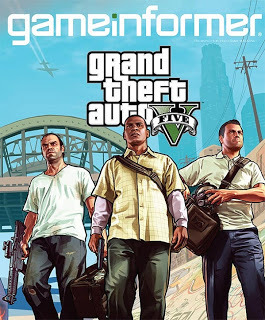
As our nation deals with its 16th (and worst) mass shooting of the year, we find ourselves embroiled in a lot of discussion about why this happened and how we can prevent it from happening again. The most popular topics of course are tighter gun controls, mental health reform, and bringing up the rear in the pack is the perennial favorite: addressing violence in popular media (movies/video games/TV/books/music). And it's this latter one I'm going to focus on, because it's most relevant to what I do and how I live my life.
Put plainly, I am both a consumer of and creator of violent media. And in light of all the horrible tragedies we've had to face in recent times, I have to ask myself if what I do is part of an overall larger problem of glorifying the "dark side" of human nature.
My answer leans toward "no." I like to think that while there is violence or general unpleasantness in my books, I don't paint it in a particularly positive light. In fact, the violence in my stories usually illustrates that such things have pretty terrible consequences. I don't get any joy out of making people kill other people, but let's face it, at the heart ANY story lies conflict. And at the heart of nearly all conflict lies some sort of violence. Or at least pain. The definition of "conflict" is "struggle." And struggles often involve unpleasantness: killing, natural death, fighting, thievery, shooting, stabbing, suicide, drugs/alcohol, betrayal, name-calling, bullying. The list goes on and on. We cannot scrub our stories clean of these things and still create compelling drama of any kind.
While some do seem to put violent acts on a pedestal, the better stories, generally, will show some kind of growth or arc of a character dealing with these things in some meaningful way. They may or may not be "heroes" in the traditional sense, but we will see consequences or retribution for a character who has committed wrongdoing or had it inflicted on them. In nearly all stories, especially the ones that people connect with/elevate/love, we will see the same story being played out time and again, and that is violence, while sometimes either necessary or inevitable, is bad or is used as a last resort.
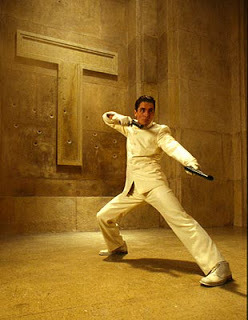
Okay, not every story plays out that way. Movies like Skyfall or The Matrix or Equilibrium make wielding a gun look pretty badass, and I think there are some people who are particularly susceptible to a certain level of mimicry. But there is a difference between watching a fictional character perform actions in a fictional story and suiting up in Kevlar and walking into a school or a mall or a movie theater and blowing away innocent people. In almost ANY story you encounter, the person who does something like that is a villain of the worst kind, and those villains are usually taken out in the end. Maybe these killers don't see that far into it. They see things in a plainer way, more black and white. They see their names making the headlines, they see merely the deed. But was it inspired by the game or the movie or the book? Or did those things merely provide an outlet for what was already there, until they gathered up enough "courage" (if you could call it that) to become the villain themselves?
The thing is, creative people of all walks create their wares for people who understand and enjoy escapism, for the same reason rollercoaster designers make rides that give people the thrill of a fight or flight experience without actually trying to kill them. Consumers and creators enter into a silent agreement that the products are only meant to entertain. We don't put death and violence into our work because that's how we want things to be. We do it because sometimes it provides another kind of lens through which to experience the world beyond the ordinary/everyday. If real-life violence spawns in relation to something we've created, then that silent agreement has been broken. If you or someone you know has trouble entering into such agreements, it's probably best to avoid the the media in question and seek help. And hopefully said help will become more readily available in light of these tragedies.
We should not mindlessly do anything, ever. There are ways to screen our content for objectionable material. There are rating systems. We can avert our eyes from the news, we can adjust the inflow of media and data to suit the way we prefer to see the world. Nobody is a forcibly opened vessel through which the world at large pours in violent and unsavory content. I despise cable news, torture porn and gratuitous rape scenes, for instance, so I avoid those things, and as such, I haven't seen them in years, nor do I intend to.
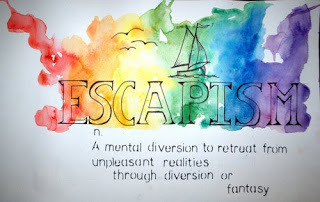
Nothing probably makes a creator of content feel more like shit than to know their book/movie/show/song actually drove someone to commit a violent act, or that it spoke to them in a way that stirred something macabre and harmful inside them. It was not meant for this. Unlike a gun, which was designed with the express intent to injure another being, a movie, a book, a video game is not. Nearly every story, no matter how dark, begins with a positive intention from the creator, to take people on a ride to places they would never otherwise go. And, if done well, it makes us feel a little better or more enlightened about our regular lives or the human condition in general. It should not make us want to take up arms and start blasting. And thankfully--though it may not seem like it now as we muddle through our grief and despair over FAR too many lost lives--people who do these things are still rare.
Entertaining the masses, or at least the segment of masses who like what I write, is all I ever wish to do in this life. Hurting people is absolutely NEVER on my agenda. I will continue writing what I do and enjoying what I watch with that express purpose in mind.
Published on December 17, 2012 10:59
December 14, 2012
The Unopened Gift
Ever since hearing about the horrible shooting at Sandy Hook Elementary in Connecticut today, I haven't been able to get the image of an unopened gift out of my head. Right now, a lot of families have presents under their Christmas trees, freshly wrapped gifts for people who will never open them. But it's so much more than that. Like the unopened presents under the tree, these young people were gifts to the world that we too will never be able to open, and that's the ultimate tragedy of any child's death.
Poetry is not a medium I've ever excelled at. It's not just because I'm bad at it (because I am). It's also because I always feel like I need more words to tell a story. But maybe it's because words fail me right now that this came out the way it did. I wrote this because it was the only way this persistent image in my head wanted to be expressed.

A box beneath evergreen
An untouched shiny bow
A parent's hopes wrapped
In a paper shroud
An unsolved puzzle
An unplayed game
A doll with no Mommy
Army men with no General
A toy with no memories
Innocence bedecked in shimmer
A sugarplum fairy dream
Suspended in ether
Poetry is not a medium I've ever excelled at. It's not just because I'm bad at it (because I am). It's also because I always feel like I need more words to tell a story. But maybe it's because words fail me right now that this came out the way it did. I wrote this because it was the only way this persistent image in my head wanted to be expressed.

A box beneath evergreen
An untouched shiny bow
A parent's hopes wrapped
In a paper shroud
An unsolved puzzle
An unplayed game
A doll with no Mommy
Army men with no General
A toy with no memories
Innocence bedecked in shimmer
A sugarplum fairy dream
Suspended in ether
Published on December 14, 2012 21:46
December 13, 2012
Why I Left Smashwords
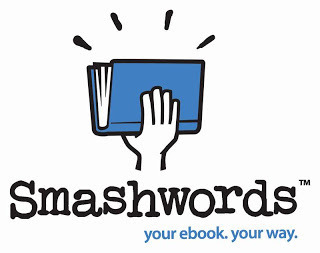 Managing one's own writing career is hard. When you have no agent or any sort of background running a business, you're at a disadvantage and you're often finding that the whole process involves mimicking other people until you find what works for you. Sometimes you REALLY want something to work, but it just refuses to do so, and after trying for over two years to get something to work, I eventually had to give up. I wrote awhile ago about the issues I had with Smashwords, but today I decided it was just time to pull the plug on these people once and for all.
Managing one's own writing career is hard. When you have no agent or any sort of background running a business, you're at a disadvantage and you're often finding that the whole process involves mimicking other people until you find what works for you. Sometimes you REALLY want something to work, but it just refuses to do so, and after trying for over two years to get something to work, I eventually had to give up. I wrote awhile ago about the issues I had with Smashwords, but today I decided it was just time to pull the plug on these people once and for all.I can hear the record needle scraping across the vinyl. I can hear the collective gasps from the indie writing community. But you know what? I can't do it anymore. I'm fucking done. Maybe Smashwords has worked wonderfully for you and I'm part of some whiny minority, and that's fine. Consider the meatgrinder less burdened by yours truly.
I'm done with waiting weeks or months for sales updates from the Premium Catalog (as of today, the last update I got from nearly all the retailers in the catalog was either October 31st or November 1st). I'm done waiting weeks for my price changes to proliferate through to the other markets (if they proliferate at all). I'm done getting paid quarterly when Amazon and Barnes & Noble pay monthly. I'm done with the shitty website design that makes shopping and browsing for books a pain in the ass or an exercise in sifting through porn. I'm done with the inconsistent distribution (why I have five books at Sony and only four books on Kobo even though I have my entire collection of fifteen or more books marked to distribute there is beyond me). I'm done with their slow to non-existent customer service when I've had to contact them regarding my abundant issues.
I'm just done.
Mark Coker has done a great thing for the indie community, don't get me wrong. I think he's a good guy and he's fighting the good fight against huge corporate interests. We need Smashwords (or something like it) to keep Amazon honest. And there is a lot I do like about Smashwords as a service, even though the casual consumer doesn't quite understand what those things are because Smashwords has not made it a priority to simplify things for them. The casual consumer doesn't understand sideloading files onto their e-reader, for instance. And in other cases, they understand it but they just don't want to do it. So I could crow until the cows come home about how ALL ebook formats (Kindle, Nook, Apple, Sony, PDF, HTML, etc) are available at Smashwords, but it isn't going to make any bit of difference if someone can't easily point their Kindles, Nooks, and tablets to Smashwords and download and start reading. As such, my core Smashwords sales have always been nil. Any sales I did get through them were through the Premium retailers, and again, it was always a crapshoot as to what those sales figures were going to be, because again, I wouldn't get accurate sales data but once or twice a quarter. This is unacceptable.
Smashwords has been promising improvements in all of my above mentioned complaints since I've been with them. I've seen very little progress, if any. Unless or until Coker is willing to put his money where his mouth is and make his service more useful for artists who need up-to-date sales and accounting data in order to generate a more useful marketing approach, and for consumers who just want to download an ebook to their readers and start reading just as easily as they can if they shop through Amazon, his site for all intents and purposes is useless to me.
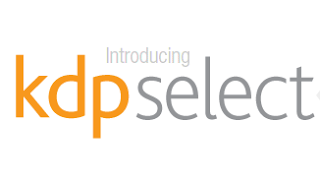
So I've pulled all my work down from Smashwords until I can formulate a new plan of attack. I may try KDP Select for awhile and see how it goes. I was very dubious about it for awhile (a lot of indie authors are running for the hills where that's concerned, and I can't say their concerns aren't valid), but this month I've had a few borrows on two of my exclusive titles, and that's a first for me. I want to test the waters with a little more of a commitment and see if this improves things. I can't just keep following every fad in the hopes it will work for me. That's what got me into the mess I have with Smashwords to begin with. If nothing else, I'll distribute to Barnes & Noble and Kobo and the other retailers myself. It's a lot more work for me to keep track of, and I'll lose all of my sales rankings at the other stores that Smashwords distributed to. The latter thing is why I held onto Smashwords as long as I did. I was making genuinely good Amazon-like sales with a few of my titles at Barnes & Noble. But at this point, my annoyance has outweighed the extra forty bucks I was making on a few short stories. I'm willing to take the hit just to be done with this crap once and for all.
I'm sorry for any inconvenience this may have caused you the readers. Things are still rocking and rolling over at Amazon, and I'm sure you will be able to buy my stuff from Barnes & Noble, Sony, iTunes, and Kobo for a while until they get the memo that I've taken down my stuff (though let us all pray that I don't have to kick Smashwords in the taint repeatedly to make it happen after a few weeks). You might wonder why I don't just use Smashwords as a standalone retailer, but let me be frank: in three months, I get MAYBE two or three sales from the actual Smashwords store. Sure, having an account there is good for SEO, but my blog, Twitter feed, and Amazon presence are doing just fine for me there as well. And I'm not sure the SEO there is actually driving sales anyway.
I'll be keeping my eye open, and if Smashwords actually does do a full revamp, and if they're actually getting useful and timely sales data, I might consider publishing with them again. Until then, I'm just going to enjoy this little bit of liberation from the constant annoyance. After all, if I'm stuck with the job of managing myself, this is the kind of stuff I have to do. Trial and error. Experiment and sacrifice. I do know that it's goddamn hard to run any sort of business when you don't know what you're selling and when.
If I live to regret this decision, I'll let you know, but I have a feeling I won't need to.
Published on December 13, 2012 12:51



